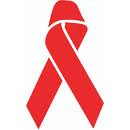
New reports spotlight the AIDS crisis.
The Centers for Disease Control released a study entitled Communities in Crisis: Is there a Generalized HIV Epidemic in Impoverished Urban Areas of the U.S.? Researchers found that AIDS rates in impoverished areas are alarmingly high. They also found that most people living in impoverished areas are Black. According to Phil Wilson, founder and CEO of The Black AIDS Institute, this only confirms what many AIDS activists have been saying for years: "...a generalized epidemic exists within many Black communities."
One interesting finding from the report involves the few Whites and Latinos living in these areas. All participants experienced elevated rates of HIV infection. In fact, the researchers found the differences between races to be statistically insignificant. So we find that when other races live in the same areas their infection rates rise to the same levels.
Phil goes on to say "To engage in a meaningful dialogue about whether or race drives the differences in HIV rates, researchers need to ask some other very important questions. What are the differences in HIV rates in poor urban communities which are overwhelmingly Black, and poor white rural communities? How do middle class and wealthy Blacks fare compared to middle class and wealthy whites?"
We do know that health outcomes for other conditions or disease states tend to be more negative for African-Americans across the income spectrum. For example, infant mortality is 3 times higher for Black babies regardless of income level. Asthma is similarly more prevalent in african americans. One study even links higher rates of asthma to poorer housing conditions. Some researchers have speculated that a greater number of negative health outcomes among African-Americans can be partially attributed to the stress of living under systemic racism.
I'm not sure what the best approach is in adressing health disparities in the U.S. I think the first step is to acknowledge them. Perhaps the next step is more research.
On a related note UNIFEM, the women's fund of UNICEF has released a report entiltled Transforming the National AIDS Response: Advancing Women's Leadership and Participation. The report essentially says that despite comprising a rising percentage of new diagnoses of HIV/AIDS, women are under represented in AIDS leadership. Salon summarizes here.

Perhaps Annie Lennox's appearance at Idol Gives Back was a good start. She spearheaded the organization SING specifically to empower women and children in the fight against AIDS.
And on the topic of women and children The World Health Organization has released updated guidelines regarding anti-retroviral treatment to prevent mother to child transmission of the virus.
Just a small slice of what's going on in the AIDS arena but 3 slices of hope I think.





No comments:
Post a Comment